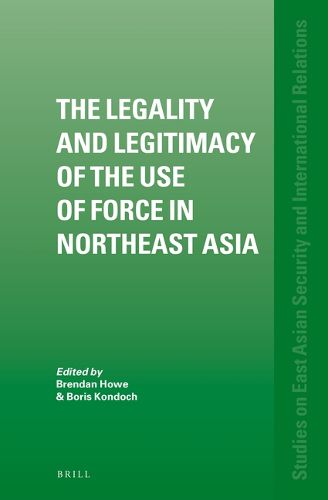Readings Newsletter
Become a Readings Member to make your shopping experience even easier.
Sign in or sign up for free!
You’re not far away from qualifying for FREE standard shipping within Australia
You’ve qualified for FREE standard shipping within Australia
The cart is loading…






In The Legality and Legitimacy of the Use of Force in Northeast Asia, Brendan Howe and Boris Kondoch bring together distinguished authors with extensive Northeast Asian backgrounds to offer a diverse and comprehensive evaluation of when it is right, from regional perspectives, to use force in international relations.
The use of force in international relations has been severely curtailed by pragmatic considerations of international order, and further constrained by positive international law. In Northeast Asia, the prohibition of aggression has remained uncontested. Strict adherence to non-intervention in Northeast Asia has, however, increasingly come under attack from internal and external normative communities. The contributors, therefore, use regional legal, normative, cultural, and historical insights to shed light on the contemporary positions of Northeast Asian political communities with regard to the use of force.
$9.00 standard shipping within Australia
FREE standard shipping within Australia for orders over $100.00
Express & International shipping calculated at checkout
In The Legality and Legitimacy of the Use of Force in Northeast Asia, Brendan Howe and Boris Kondoch bring together distinguished authors with extensive Northeast Asian backgrounds to offer a diverse and comprehensive evaluation of when it is right, from regional perspectives, to use force in international relations.
The use of force in international relations has been severely curtailed by pragmatic considerations of international order, and further constrained by positive international law. In Northeast Asia, the prohibition of aggression has remained uncontested. Strict adherence to non-intervention in Northeast Asia has, however, increasingly come under attack from internal and external normative communities. The contributors, therefore, use regional legal, normative, cultural, and historical insights to shed light on the contemporary positions of Northeast Asian political communities with regard to the use of force.